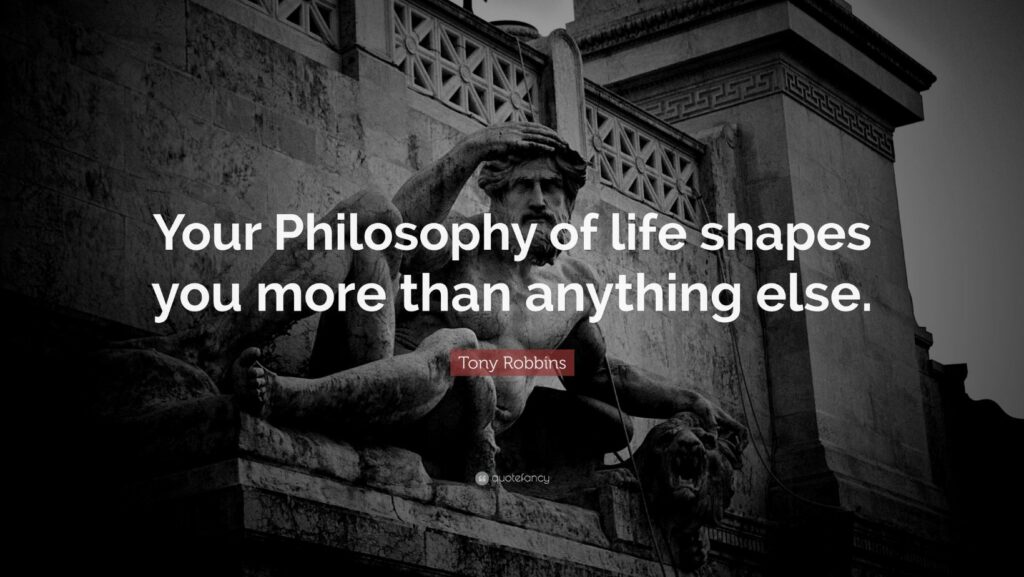
What is Your Philosophy of Life
Exploring one’s philosophy of life can offer profound insights into one’s beliefs, values, and perspectives.

It’s a personal journey that shapes how one navigates the complexities of existence. What is your philosophy of life? Whether it’s finding meaning in everyday experiences, seeking fulfillment in relationships, or striving for personal growth, one’s philosophy of life serves as a guiding light.
In this article, we delve into the essence of a philosophy of life, examining how individuals construct their unique frameworks for living. What is your philosophy of life? From existential ponderings to practical wisdom, each person’s philosophy reflects their understanding of the world and their place within it. By pondering the fundamental questions of existence, individuals can uncover the principles that anchor their decisions and actions, ultimately defining the paths they choose to follow.
Defining What Is Your Philosophy of Life
Understanding one’s philosophy of life is crucial for gaining insights into personal beliefs, values, and perspectives. It serves as a compass guiding individuals through life’s complexities, helping them find meaning in their experiences, seek fulfillment in relationships, and strive for personal growth. This introspective journey sheds light on one’s understanding of the world and their role within it, shaping the paths they choose to follow.

Exploring Personal Core Values
Personal core values are fundamental principles that guide decision-making, behavior, and interactions with others. By exploring and understanding these values, individuals gain clarity on what matters most to them. These values serve as a foundation for ethical choices, shape relationships, and influence personal growth. Identifying one’s core values is essential for aligning actions with beliefs and leading a purposeful life.
The Role of Beliefs and Attitudes
Beliefs and attitudes play a significant role in shaping one’s philosophy of life. Beliefs are deeply held convictions about the world, oneself, and others, influencing perceptions and behaviors. Attitudes reflect one’s feelings and evaluations towards various aspects of life. Examining and challenging existing beliefs and attitudes can lead to personal growth and a deeper understanding of oneself. By clarifying and aligning beliefs and attitudes with personal values, individuals can cultivate a positive and enriching philosophy of life.
Historical Perspectives on Life Philosophies
Ancient Philosophies and Their Relevance Today
Ancient philosophies such as Stoicism and Buddhism offer timeless wisdom that remains pertinent in modern times. Stoicism, practiced by the ancient Greeks and Romans, teaches individuals to focus on what is within their control and accept what is not. This philosophy of resilience and virtue encourages individuals to cultivate inner strength and find peace amidst life’s challenges. Similarly, Buddhism, originating in ancient India, emphasizes mindfulness, compassion, and letting go of attachments. These principles promote emotional well-being, self-awareness, and a deeper understanding of the self, guiding individuals to lead a more balanced and harmonious life.

Modern Philosophical Thoughts
In contemporary times, various philosophical movements have emerged, shaping how individuals perceive and approach life. Existentialism, for instance, explores themes of freedom, choice, and the search for meaning in a seemingly indifferent world. Existentialist thinkers like Jean-Paul Sartre and Simone de Beauvoir delve into the complexities of human existence, urging individuals to create their own values and define their essence through actions. Additionally, Humanism advocates for human dignity, compassion, and rationality in navigating life’s challenges. This philosophy celebrates human potential, emphasizing the importance of empathy, reason, and ethical decision-making in fostering personal growth and societal progress.
To determine one’s philosophy, start by reflecting on life experiences. Thinking about significant events can provide insight into personal beliefs and values. By evaluating past experiences, one can identify patterns that shape their worldview.
Reflecting on Life Experiences
Reflecting on past experiences allows individuals to recognize recurring themes that influence their perspectives. It’s essential to consider how these events have impacted one’s beliefs and values. By introspecting on life experiences, one can gain a deeper understanding of their core principles.
Evaluating Personal Ethics and Morality
Assessing personal ethics involves reflecting on the moral principles that guide decision-making. Consider what values are fundamental to ethical choices and how they align with your actions. Evaluating one’s morality helps in defining a moral compass to navigate life’s complexities.
